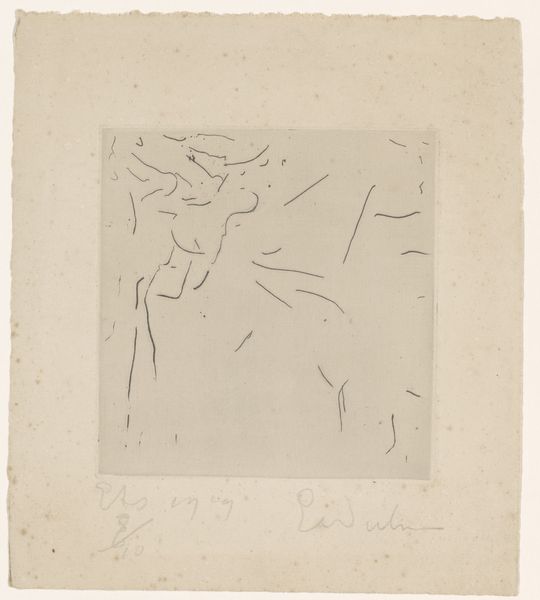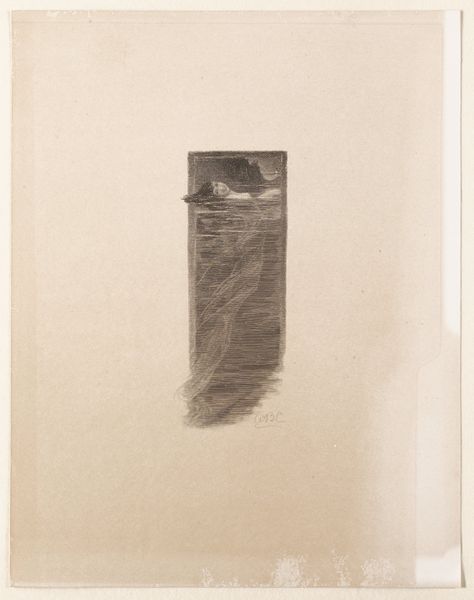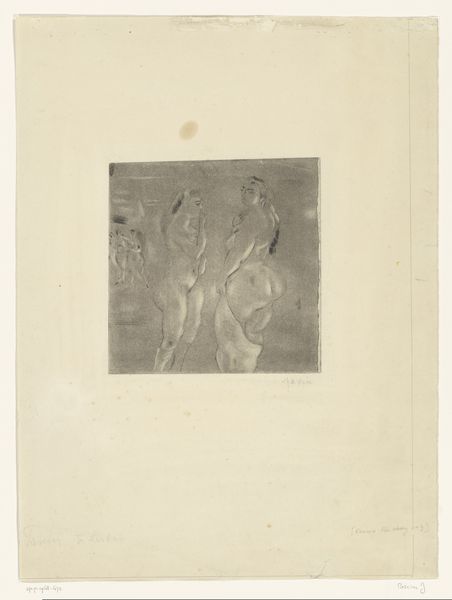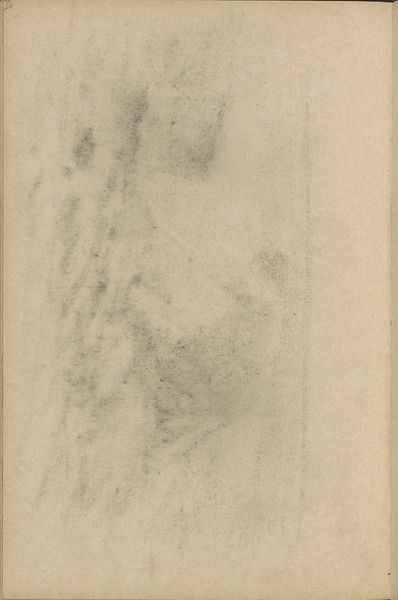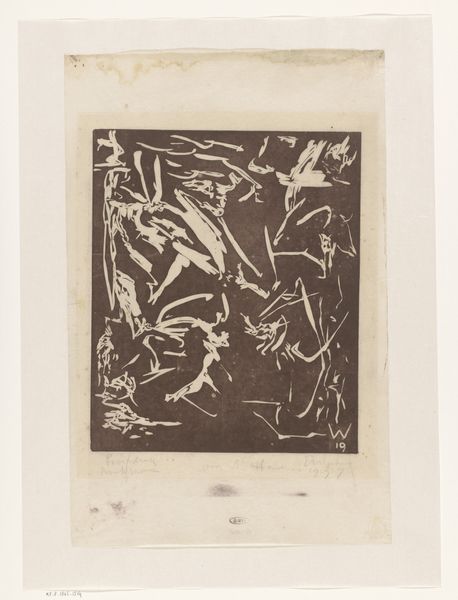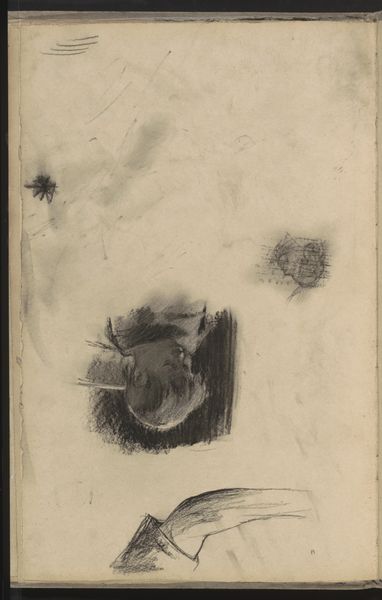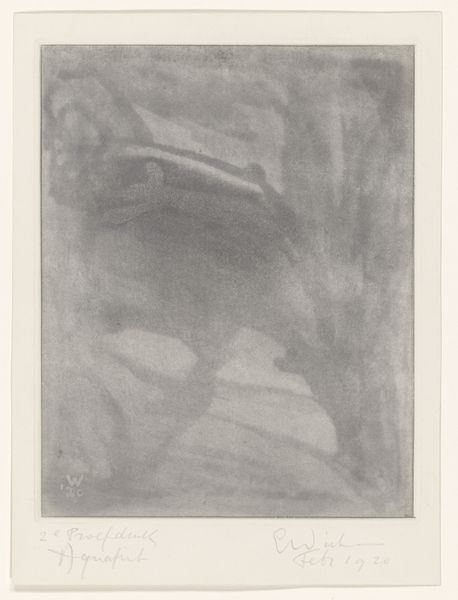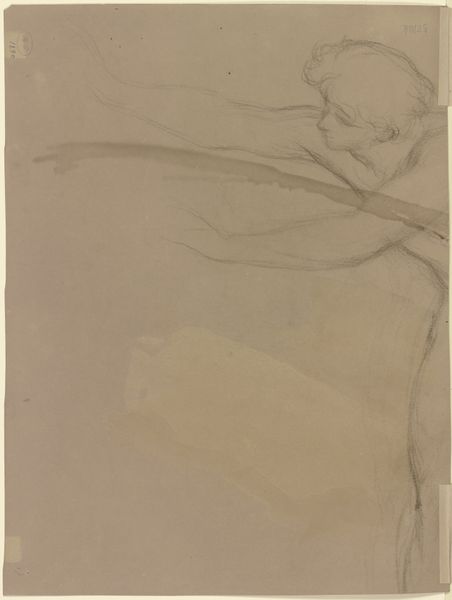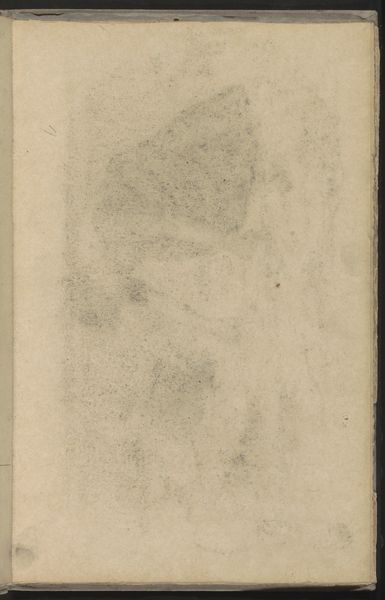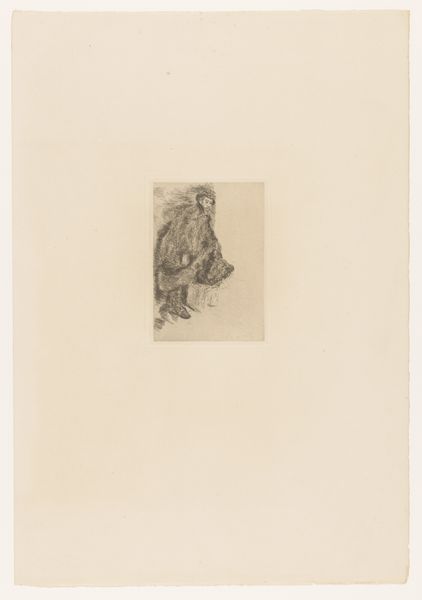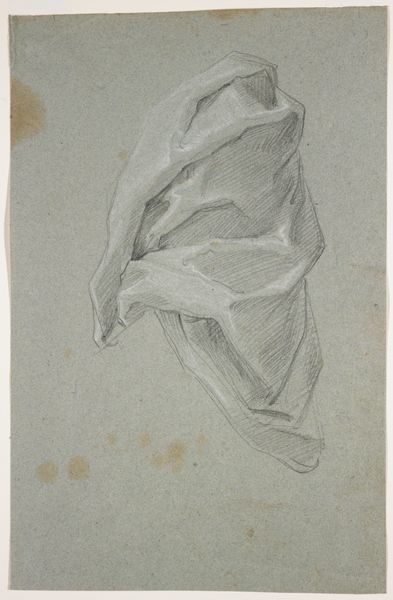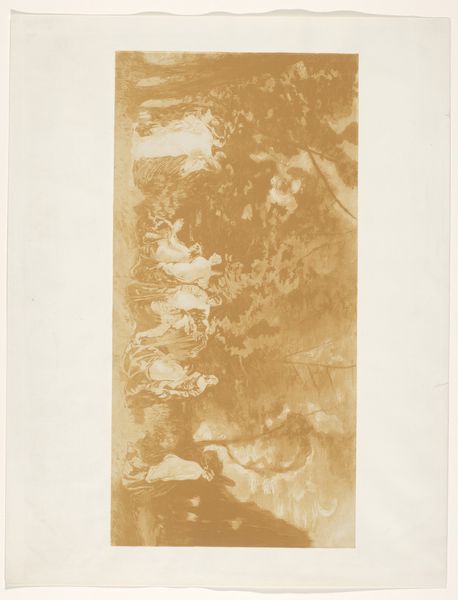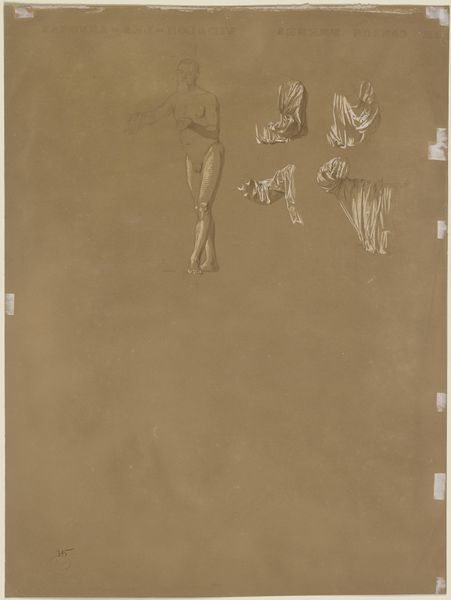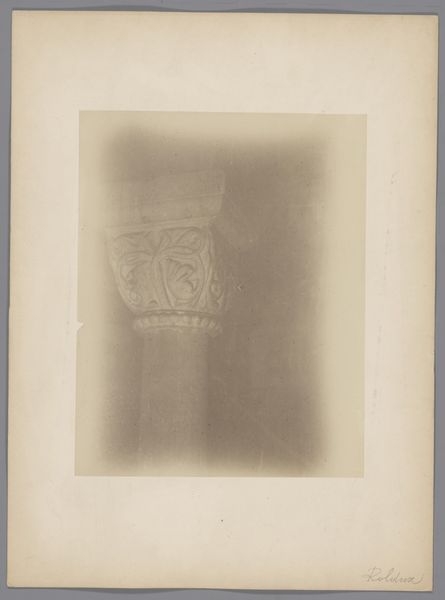
watercolor
watercolor
geometric
abstraction
modernism
watercolor
Dimensions: height 278 mm, width 197 mm
Copyright: Rijks Museum: Open Domain
Curator: So, here we have Erich Wichmann's "Abstractie compositie", created sometime between 1920 and 1923. It's a watercolor piece. Editor: Ooh, it’s moody. Like looking into a charcoal fog. Somber but somehow peaceful, like a meditation on shades of grey. Curator: The medium choice is interesting. Watercolor's association with the amateur or "feminine" practice runs a bit counter to the formalist concerns, especially given the social disruption and questioning of established norms of the early 20th century that impacted material availability. Editor: Hmm. Maybe it was an exercise in restraint? Like the artist purposely limited their options, wrestling expression out of the bare minimum? Or it suggests a comment on easy reproducibility? A gesture available to all. I keep imagining how the artist would have worked to manipulate water across paper, guiding those tones… Curator: Yes, there's also a relationship to printmaking--wash techniques imitating lithographic texture perhaps--that can also suggest the expanded production of graphic media from this period, connecting with broadsides and advertising. These new kinds of circulation reshaped understandings of visual culture. Editor: I like how you made that link to graphic design—it makes the piece less intimidating, somehow. For me, seeing something "abstract" makes me ask, “What IS it? What’s it *supposed* to be?” Thinking about design helps the mind engage in a different, perhaps more intuitive way... Curator: Which is a valuable point. The rise of advertising fundamentally shifted not just artistic patronage but understandings of skill and artistry tied less to painting or sculpture, per se. Editor: I get this feeling of melancholy combined with defiance. The world’s changing, life is difficult, so I will paint, or make, whatever and however I choose. Watercolor rebellion! Curator: Watercolor rebellion indeed. Examining the context allows a deeper appreciation. Thanks for pointing out the defiance within the artistic freedom of such constraint! Editor: Thanks, my friend, I appreciate our time in the grey zone of the abstract.
Comments
No comments
Be the first to comment and join the conversation on the ultimate creative platform.
